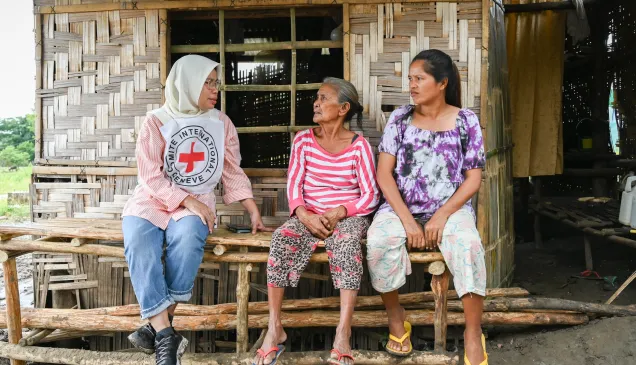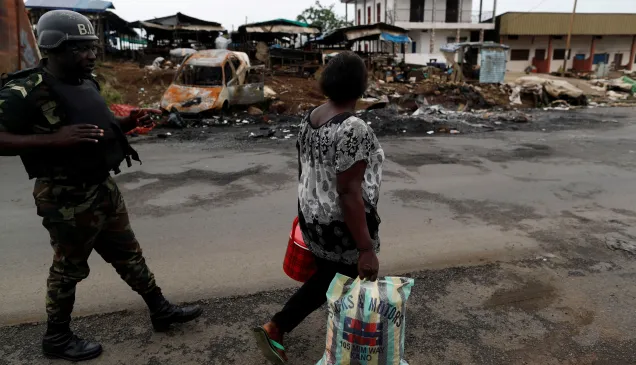Philippines: Paying it forward a step at a time
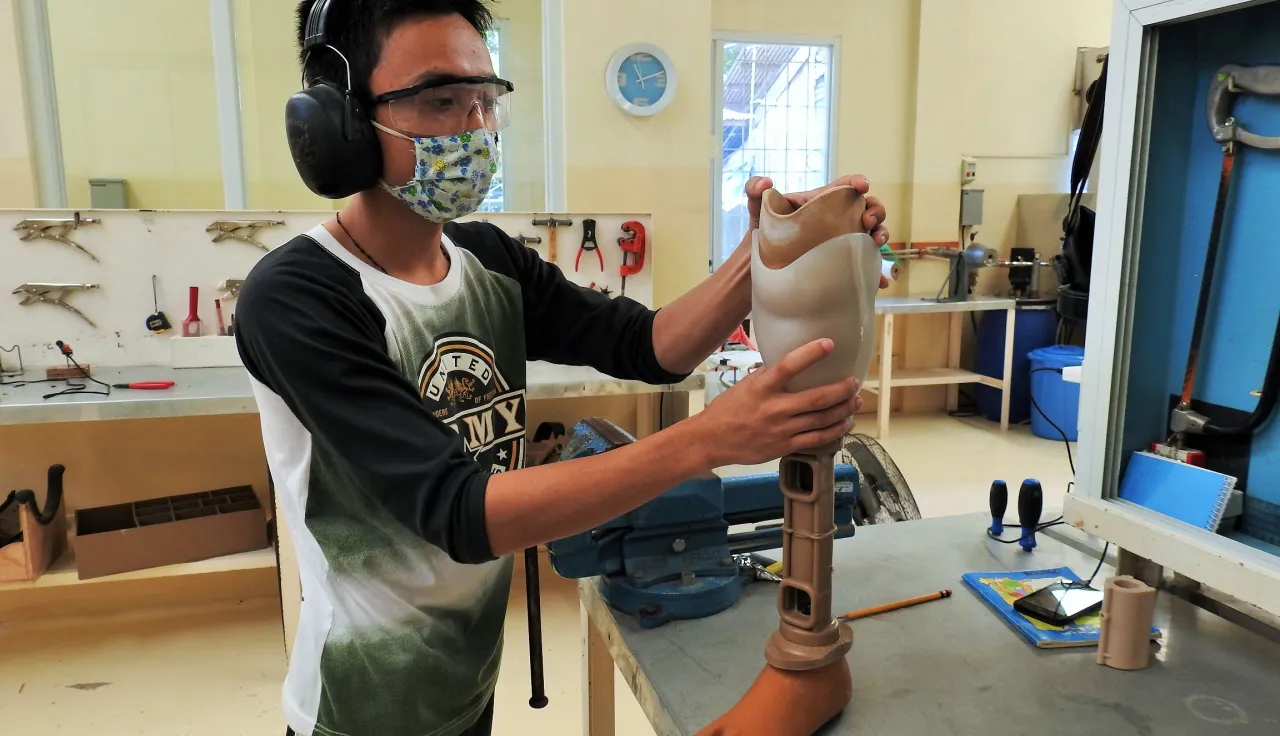
Overcoming difficulties is something people with disabilities do every day. It takes great effort and dedication to adapt to their condition. Very often they have to learn all over again how to do basic activities such as standing or walking without aid. They also have to cope with the impact of their disability on their own confidence.
In 2005, then eight-year-old Saturnino Latonio Jr. or Bim-Bim was watching TV with his friends inside their friend's house in Maco, Compostela Valley when a loud bang went off. A rifle was accidentally fired by a man, hitting him on the left knee. He recalled, "My left knee just exploded and I was in pain. There was blood everywhere." Bystanders rushed the bloodied boy to the nearest hospital.
Doctors tried to save Bim-Bim's limb, but the severity of his injuries led to the amputation of his left leg. He recuperated in the hospital for a month. Bim-Bim's surgeon, upon learning that he was wounded by a weapon and that his family had financial challenges, referred him to the ICRC. After an assessment of his case, he was enrolled in the physical rehabilitation program of the ICRC in partnership with the Davao Jubilee Foundation (DJF). The Davao Jubilee Foundation is a long-time partner of the ICRC in the field of physical rehabilitation for weapon-wounded patients.
Bim-Bim was fitted with an artificial leg. He practiced standing up and walking with it with the help of DJF's therapists. He returned home after a month but continued practicing until he got used to his artificial leg. He pressed on despite the bullying of some people.
After two months, Bim-Bim's mobility—playing or doing some outdoor activities—improved. He got back on his feet to play with his friends, engaged in community activities, and, eventually, finished secondary school.
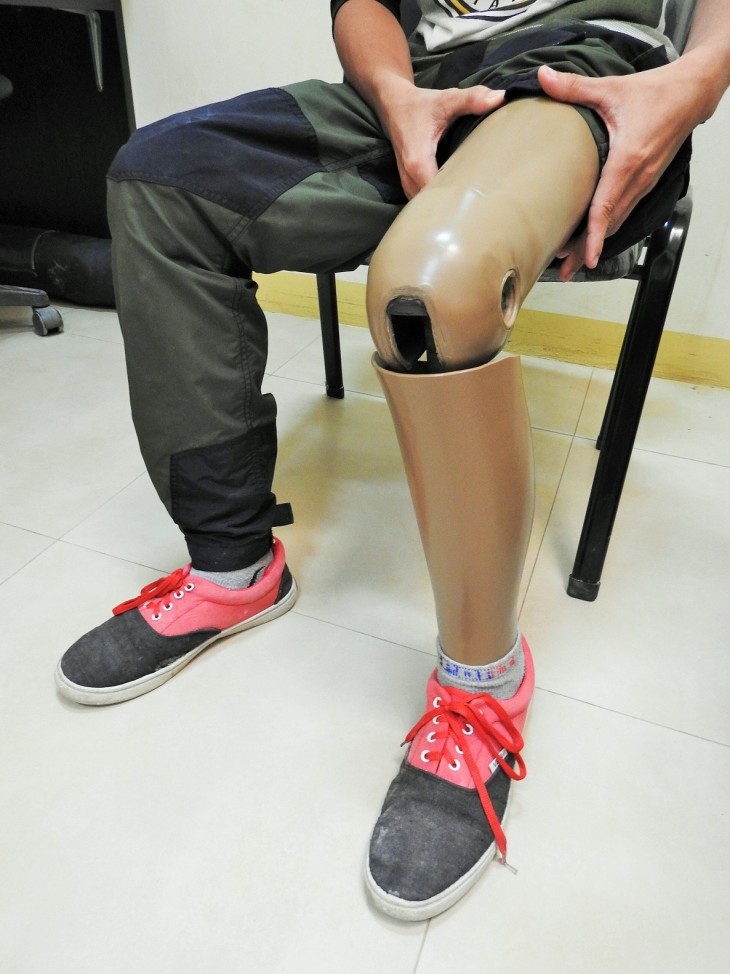 Bim-Bim has since relearned to stand on his own feet and is now helping others. ICRC/R.Ang
Bim-Bim has since relearned to stand on his own feet and is now helping others. ICRC/R.Ang
"I am very grateful to the ICRC and DJF. Had it not been for them, I would have lost hope and confidence. I wouldn't know what to do. I don't even know if I could work, earn a living, or support myself," he said.
Like other patients with prosthesis, Bim-Bim was required to visit DJF every two years to be refitted with a new artificial leg. This is because the prosthesis suffers from wear and tear of daily use, and to make sure that the prosthesis is well adjusted to the patient's limb.
In 2015, Bim-Bim was given a lightweight prosthesis using technology introduced by the ICRC to the DJF. Polypropylene technology—which is used in ICRC-supported rehabilitation facilities in Cambodia, Vietnam and Myanmar—is both inexpensive and of high quality, thus making rehabilitation services more affordable and accessible.
Last year, Bim-Bim, who was already 18 years old, received a call from DJF to check if he was interested to receive the socio-economic support for ICRC's supported amputees. Qualified beneficiaries of this program undergo a technical-vocational course for free and receive livelihood assistance upon completion of the course.
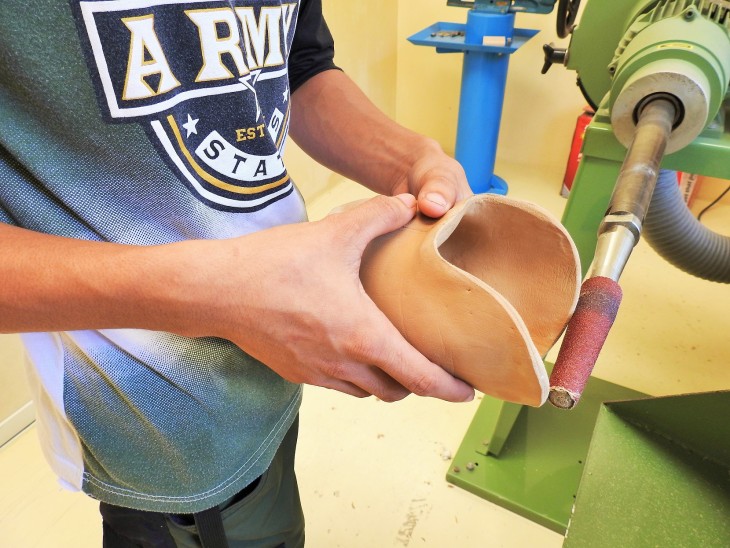
Bim-Bim at work in the Davao Jubilee Foundation. ICRC/R. Ang
Without hesitation, Bim-Bim accepted the offer because the course would open up more opportunities for him. He was among the first batch of seven weapon-wounded individuals who received this assistance.
He studied welding for one month at a local vocational school where he earned a National Certification level 02 from the Technical Education and Skills Development Authority (Tesda). Upon graduation, the ICRC provided him with a portable welding machine so he could start earning a living.
"It so happened that around that time, DJF was looking for a young, dynamic, and qualified person to work as a prosthetic/orthotic lab assistant. Bim-Bim's capability and his recently earned diploma from Tesda was a good match. So we offered him a job which he accepted," said Cheryl Arellano, DJF's operations manager.
"Before, other people made prostheses and assistive devices for patients like us, but now I'm very happy that in my own little way, it is my turn to help others. I'm glad that I have a decent work now. I'm earning and able to provide for my parents. I'm also helping other people have a better life," Bim-Bim shared.
Recently, the ICRC helped upgrade the DJF's facility by renovating and equipping its physiotherapy area to improve the access to physical rehabilitation care. Currently, a dormitory is being constructed for the patients' use.
"A disabled person needs more than an artificial leg; he or she needs a role in society to recover dignity and self-respect," said Davide Fasola, ICRC health delegate in Mindanao. "Our hope is that through the physical rehabilitation program, weapon-wounded people affected by armed conflict can reintegrate, socially and economically, into society."

